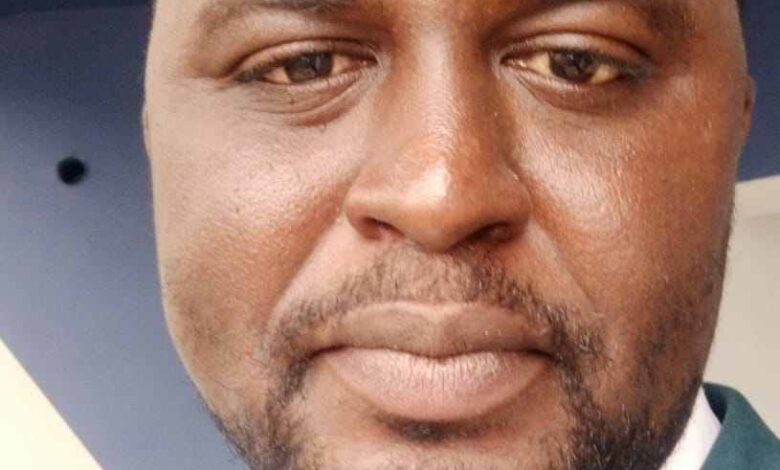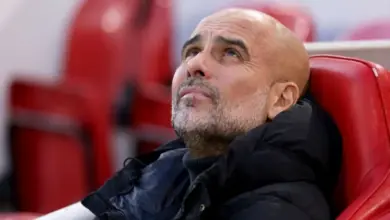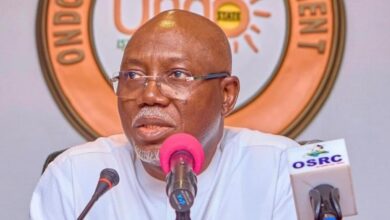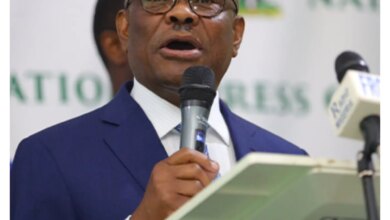INTERVIEW: Nigeria at 65: ‘It keeps getting worse’ – Economist, Simon

Dr. Samson Simon, chief economist, ARKK Economics & Data Limited, has said that Nigeria does not seem to have gotten it right from the word go. In this interview with DAILY POST, he speaks about the 65 years independence anniversary, economic hardship in the country, political corruption, judiciary, among other issues.
At 65, many Nigerians are struggling under rising food prices, fuel costs, and unemployment. In your opinion, has independence delivered economic freedom to ordinary citizens?
Independence for Nigeria has largely not availed much for ordinary Nigerians. Most especially when compared to other economies we were at the same level in 1960. Nations like South Korea and Malaysia have done much more for themselves and improved the lot of their citizens.
However, for Nigerians the larger chunk of the population still struggles with making ends meet, They cannot afford food, and the recent rises in fuel price have priced them out and unemployment seems unabated. So, it can be said that independence has not delivered economic freedom to ordinary Nigerians. It is the elite who have replaced the colonial masters that have seen their situation get better.
How would you describe the impact of current economic realities on the average Nigerian family?
The current economic realities have impacted the average Nigerian family badly as hyperinflation has led to a cost of living crisis hence making families struggle to keep body and soul together. Purchasing power being eroded and consequently making families hard up. And really badly so.
Do you believe successive governments have betrayed the hopes and aspirations of Nigeria’s founding leaders?
Nigeria does not seem to have gotten it right from the word go. It is just sad that it keeps getting worse. While the founding leaders might have done their bit, however, that did not move the needle for majority of Nigerians. Even the hopes and aspirations of the founding fathers are not any different from the ones trumpeted by the current crop of leaders. In spite of this, if subsequent leaders had built on the legacies of the founding leaders and even improved on them, we might have been reaping the benefits by now. Sadly, the overwhelming majority are still stewing in regression as of now.
What role has corruption and bad governance played in worsening today’s harsh economic conditions?
Corruption and bad governance have played a huge role in making Nigeria to fail woefully at reaching its full potential. And the current malaise being suffered might have been the direct result of these twin evils. Public funds are being diverted, contracts inflated, incompetence and ineffective government policies are being pushed hence yielding next to nothing for the everyday Nigerians.
Some argue that Nigeria’s judiciary is no longer the last hope of the common man. How do you assess the performance of the judiciary in protecting citizens’ rights?
The Nigerian Judiciary might have had better days, but at the moment, the sentiments, as well as the fundamentals seem set against it. It is considered not independent, corrupt and not able to dispense justice without fear or favour. This calls for reforms that would make it at par with the best judicial systems anywhere in the world. This does not mean that it is completely gone as we still see pockets of successes with freeing of government critics and ruling against the government.
Many election disputes are decided in court rather than at the ballot box. Do you think the judiciary has strengthened or weakened Nigeria’s democracy?
The judiciary should not determine who wins or loses an election as it is becoming the norm in recent times. It should ask for disputing parties to go back to the polls and let the people be the only ones determining who should be the winner or not of an election. By the judiciary arrogating to itself the powers to pick winners and losers in elections, it has undermined democracy.
Looking back 65 years, do you think Nigeria’s leaders have managed the country’s resources responsibly?
Nigeria’s resources have not been managed well by any stretch of the imagination. There are a myriad of cases to prove the inefficiencies, incompetencies and inability of those in charge to deliver a modicum of decent living for the lowliest of Nigerians. And a country can only be considered to do well when it takes care of its weakest and most vulnerable. Nigeria has not done so well in that regard.
What urgent reforms do you think are needed in governance and the judiciary to put Nigeria on the right path before its 70th independence anniversary?
There is a need for reforms in all facets of Nigerian life, among which should be the overhaul of the fight against corruption with the strengthening of the EFCC, ICPC, Auditor General’s Office, etc, by making them independent and supplying them with all the resources to deliver.
And more importantly, build structures to prevent acts of corruption and make Nigeria the most transparent society with drastic reduction if not complete elimination of corruption in daily activities through automation and other technologies.
Secondly, make Nigeria the easiest place to do business to boost investments, most especially FDIs in order to grow the Nigerian economy and make Nigerians thrive in their homeland.
Thirdly, LGA reforms guaranteeing hundred per cent autonomy for them and making the leadership accountable and corruption-proof.
Fourthly, creating a merit-based society while being inclusive as well, among others.
Despite the challenges, do you still see hope for Nigeria’s future?
Of course there is hope. But more of what we have as evidence does not guide this hope. It is rather hoping against all hope as the situation does not present one with any empirical basis to hope. Furthermore, sectors like Nigerian music, movies and IT might be the bright spots.





